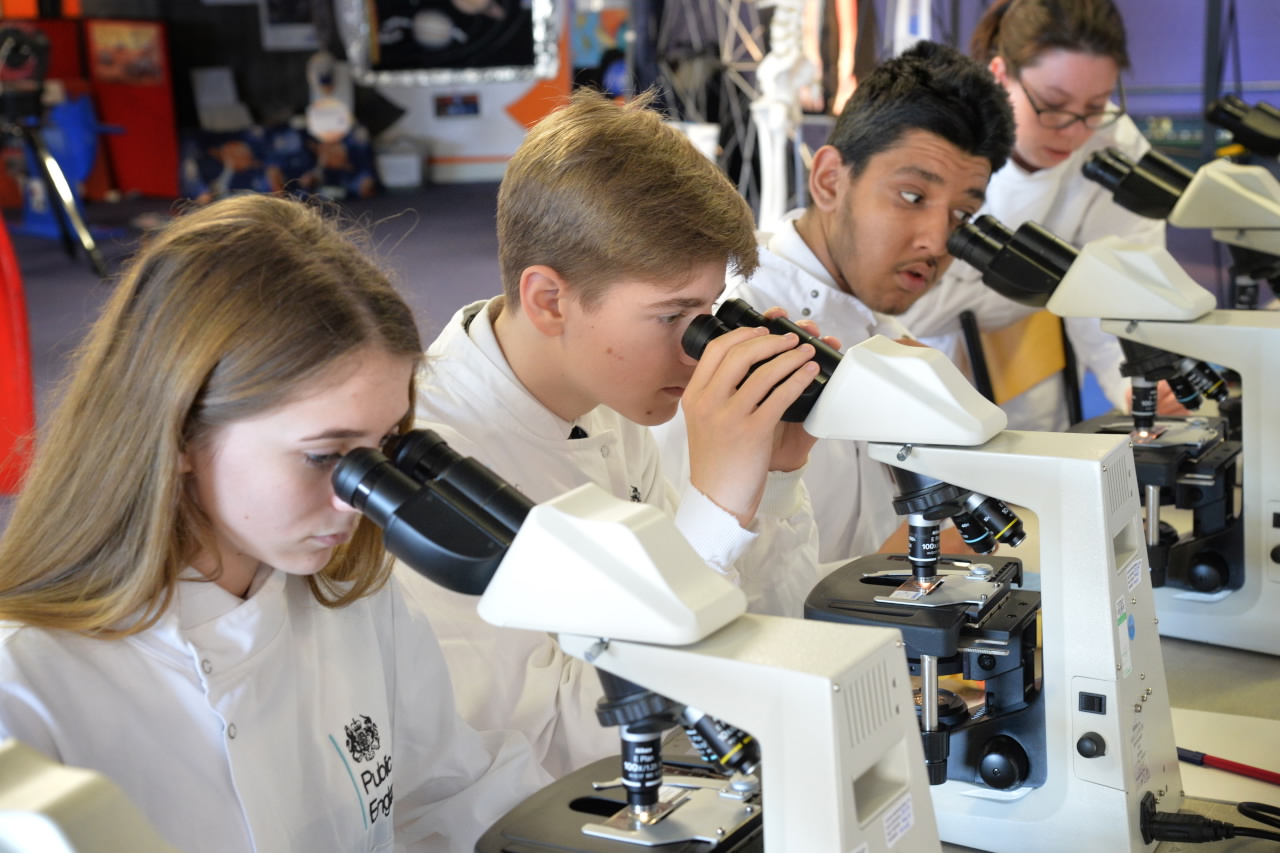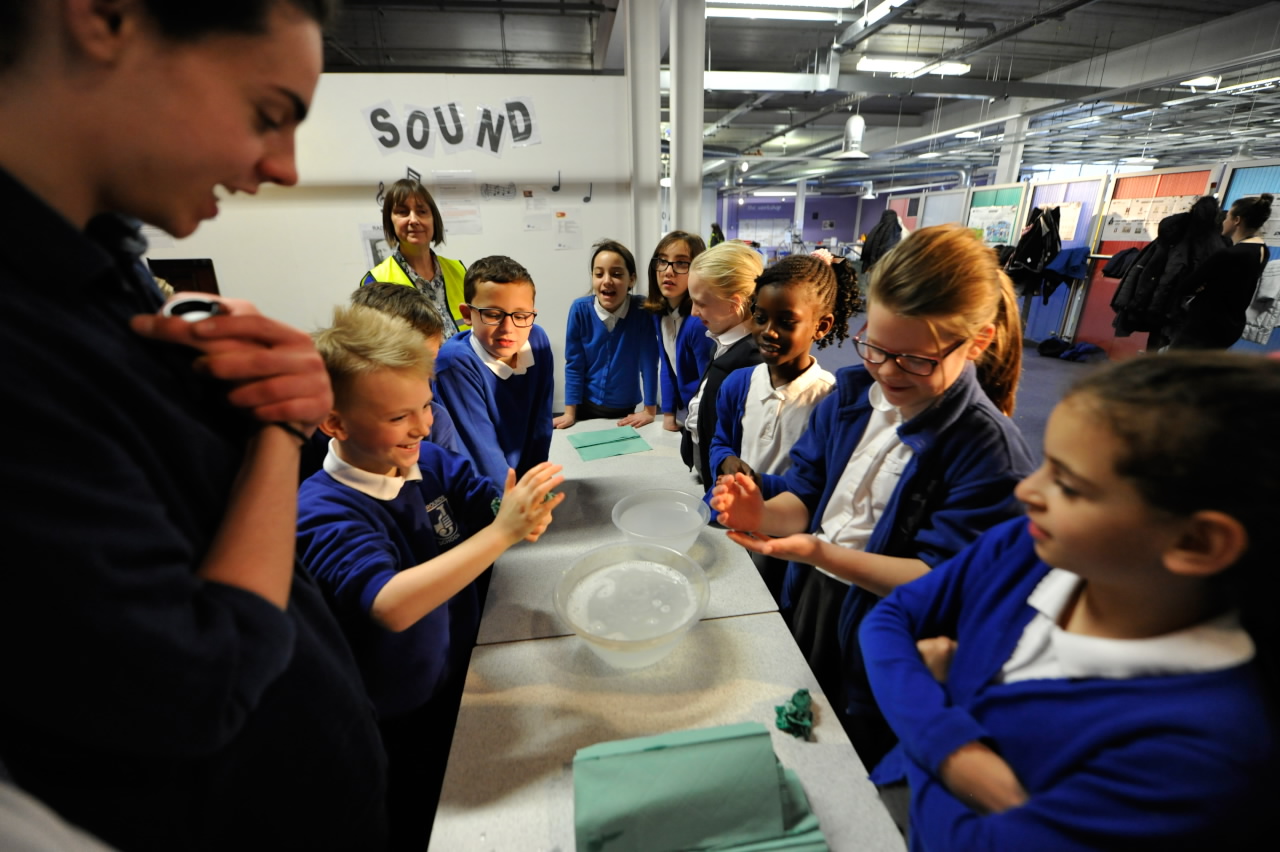
As part of British Science Week, several PHE scientists have been offering interactive workshops to primary and secondary schools in Harlow, Essex, encouraging children to think about science as a future career. As we move towards submitting a planning application to move our headquarters and develop a world-class science hub in Harlow, it felt fitting to visit the local area and engage with students on why this is a rewarding and exciting career path.
Derren Ready is a Clinical Scientist and head of our Respiratory and Systemic Bacteria Section and has answered some questions on the work the team have done this week engaging with young people.
What do you want young people to know about jobs in science?
When talking about being a scientist to a group of young students it’s important to highlight just how exciting and unique a job it really is.
The excitement and anticipation of perhaps being the first person in history to see results from a piece of research or the feeling of wellbeing you get from knowing that your work positively impacts people’s lives is why I’m passionate about what I do, and why I want young people to feel inspired to follow.
Microbiology is an amazing topic. It may be commonly known that we have trillions of cells in our bodies, but the fact we have ten times as many microbes seems unbelievable – too big a number to even conceive of, but it’s true. A cell is a single unit of life and they are found in humans, plants and animals. It often takes lots of cells to build one organism. Microbes are micro-organisms (such as bacteria, virus and fungi) which are commonly only single celled, meaning they are less complex and have everything needed for life in just one cell.
Many of us enjoying watching science shows on TV, particularly about the animal kingdom (meerkats seem very popular on TV right now!) and learn lots about them from their behaviour to anatomy, but we rarely learn that much about the interactions between ourselves and the microbes that make us human.
Science gives us a chance to learn and it will never stop being interesting.
Some may believe a scientific career is only for the brightest students with the highest marks, but this simply isn’t the case.
Working in the field of public health has shown me that there is a vast selection of roles to aspire to - including lab-based staff assisting with diagnostic testing, to working out in the field identifying environmental risk factors – the opportunities reach far and wide.
The chance for the team of PHE volunteers to go out and spend some time celebrating the great work we do at Public Health England and being able to inspire students at the same time has made for a great week.


What do we need to do to get more young people onto scientific career paths?
Perhaps most importantly, we need to invest in training. To excel in a career path you need to have the opportunity to train and I believe scientists of all levels should find some time to assist in developing others and helping young, aspirational scientists to grow and find their place in the working world.
As difficult as it can be to find the time for this, it’s definitely a strong focus when it comes to the next generation of scientists.
It’s also vital that we dispel the myth that every scientist is a genius. As I touched on before, there are many jobs available in this career path and that means there is something for everyone who has an interest.
Thinking back to being at school and through the activities we’ve all done this week, it’s interesting to be reminded of the mixture between practical and written work and how both of these styles of learning can be applied to science.

Have you noticed a change in the way young people feel about science and what does this mean for the future?
The internet has been great for providing access to science topics for all age groups and it’s so much easier to find information really quickly compared to when I was a student.
As young people now are very immersed in using the internet, it’s good to reinforce that work in science involves online work too!
For example, one of our teams at PHE have developed a tool called eBug, which is an online resource educating students on microbes and antibiotic resistance. Work like this is just as important as being in a lab.
Having worked with lots of students and fellow scientists over the years and taking advantage of great opportunities like British Science Week, I can say I am very optimistic and hopeful for the future and the new generations of scientists.
Interested in receiving more blogs like this? Please sign up for updates via email or follow us on Twitter.
